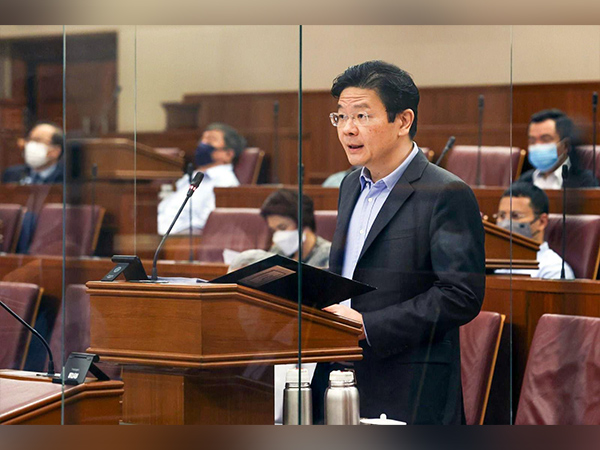Singapore's Dy PM Lawrence Wong to arrive in India on 5-day visit
Singaporean Deputy Prime Minister Lawrence Wong will visit India from September 17 to 21, in his first official visit to India after holding office.

- Country:
- Singapore
Singaporean Deputy Prime Minister Lawrence Wong will visit India from September 17 to 21, in his first official visit to India after holding office. Wong will be participating in the inaugural India-Singapore Ministerial Roundtable (ISMR) in New Delhi on 17 September 2022, together with the country's Minister for Foreign Affairs Vivian Balakrishnan, Minister for Trade and Industry Gan Kim Yong, and Minister for Transport and Minister-in-charge of Trade Relations S Iswaran, said Singapore's Prime Minister's Office in a statement.
The ISMR is a new ministerial platform between Singapore and India which seeks to deepen existing cooperation and identify opportunities for mutually-beneficial collaboration in new and emerging areas. Deputy Prime Minister Wong will also meet senior Indian leaders and personalities. Deputy Prime Minister Wong will travel to Gujarat on September 18, 2022, where he will meet Gujarat Chief Minister Bhupendrabhai Patel and visit Gujarat International Finance City. Deputy Prime Minister Wong will be accompanied by officials from the Ministry of Foreign Affairs and Ministry of Finance.
India and Singapore have a close bilateral relationship based on the convergence of economic and political interests. The process of economic reforms in India since the early 1990s created a strong basis for cooperation with Singapore, opening up possibilities for a significant presence in each other's economies. For India, Singapore has played an important role in reconnecting us to the countries of South East Asia since the inception of our Look East Policy in the early 1990s. As pluralistic societies, the two countries share a similar concern about the challenges posed by terrorism and fundamentalism and have, therefore, found it mutually beneficial to evolve a broad framework of security cooperation. (ANI)
(This story has not been edited by Devdiscourse staff and is auto-generated from a syndicated feed.)
ALSO READ
Gujarat CM launches Ahmedabad metro train coaches at Titagarh plant
Gujarat Kidney and Super Speciality Announces Rs 251 Crore IPO
Voter Roll Revision Excludes 1.71 Crore Electors in Tamil Nadu and Gujarat
Massive Overhaul: Gujarat's Voter Roll Clean-up Removes 74 Lakh Names
Gujarat Electoral Roll Overhaul: 73.73 Lakh Voters Removed After Intensive Revision










